
Culture
08:45, 20-Aug-2017
Eat the Sun: Eclipse tales down the years
By Joshua Barlow
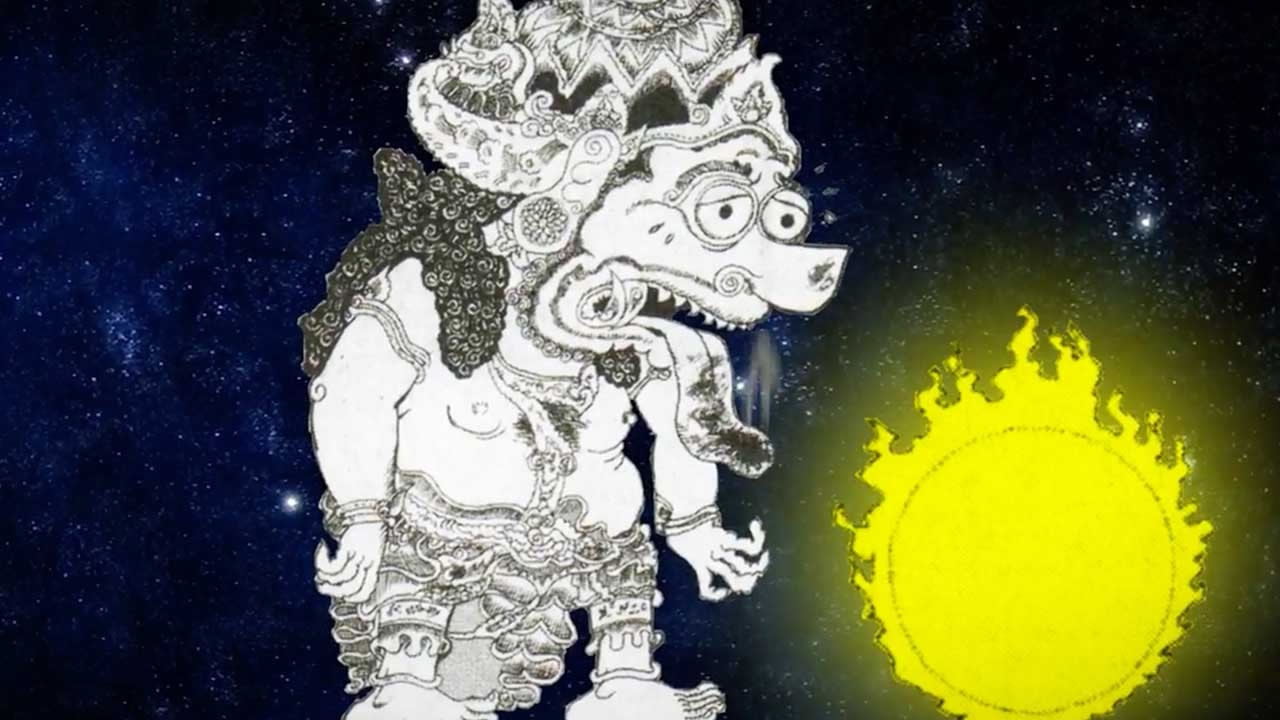
Over the millennia, there’ve been countless ways humans have tried to explain the unexplained. Phenomena such as a total solar eclipse is no exception.
One eclipse legend common to ancient cultures around the world is that of a predator chasing the Sun so to devour and extinguish its life-giving fire.
In China, one of the earliest words for eclipse is "Ri-shi,” which means “eat the sun" in Chinese.
China folklore
The origins likely come from ancient Chinese folklore, where a heavenly black dog called Tian Gou (heavenly dog), was depicted as trying to devour the sun.
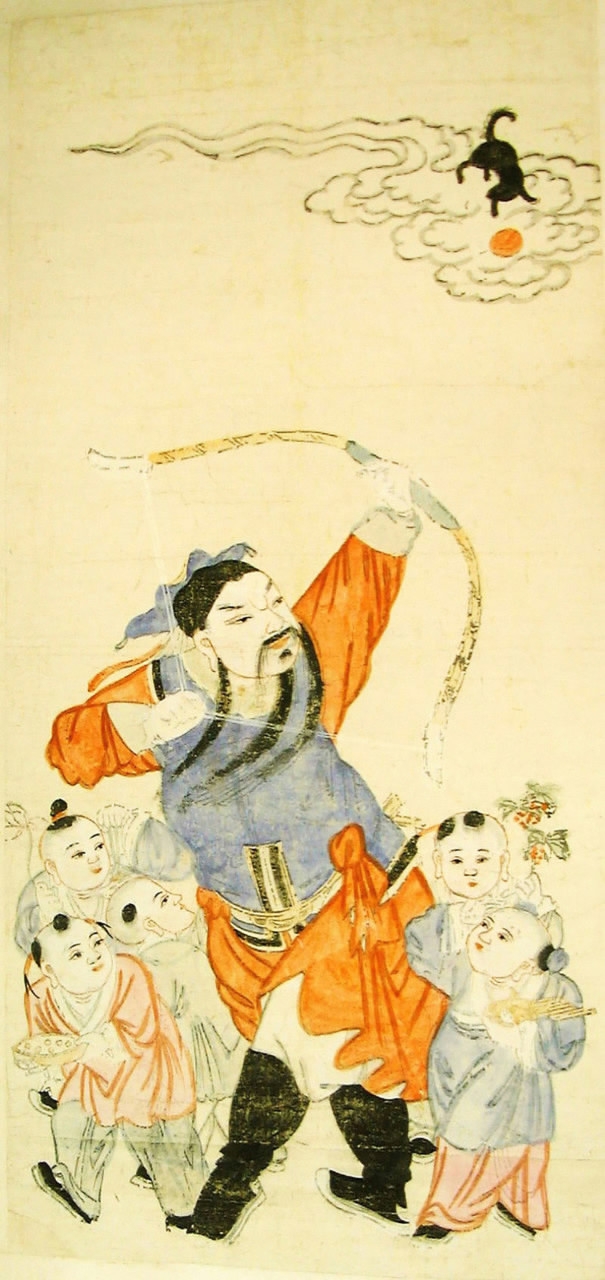
This painting depicts Zhang the Immortal shooting a pebble bow at a heavenly dog. /Photo via CGTN America
This painting depicts Zhang the Immortal shooting a pebble bow at a heavenly dog. /Photo via CGTN America
Since eclipses were omens of great change, fending off sun-eating dogs was serious business. As such, royal astronomers at the emperor’s court were charged with shooting arrows, banging pots and making whatever noise they could to scare off this eclipsing canine.
Despite their efforts, the tale of the heavenly dog has persisted. 20th century Chinese poet Guo Moruo wrote on Tian Gou:
I am a heavenly dog! I eat up the Moon,
I eat up the Sun.
I eat up all the planets, I eat up the universe.
I become what I am!
Hindu mythology
To be sure, there’s more than one way to lose your head over an eclipse.
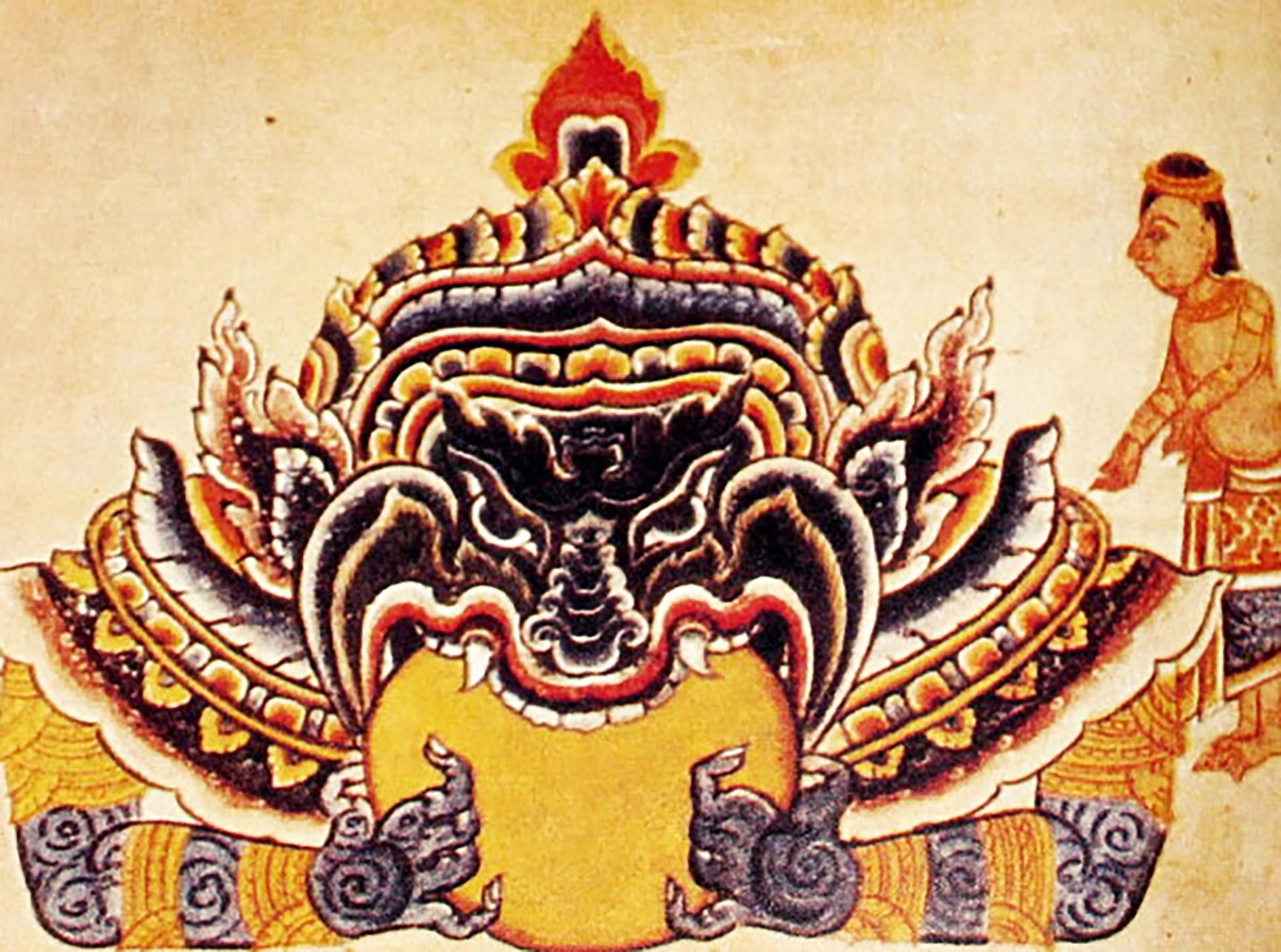
Rahu’s immortal head now chases the Sun and Moon in anger, occasionally swallowing them, causing the eclipse./Photo via CGTN America
Rahu’s immortal head now chases the Sun and Moon in anger, occasionally swallowing them, causing the eclipse./Photo via CGTN America
In Hindu mythology, the demon Rahu became a mortal enemy of both the sun and the moon after they caught him stealing a drink of immortality elixir reserved for the gods.
When the sun and moon reported this theft to supreme being Lord Vishnu, Vishnu chopped off Rahu’s head before the elixir reached his body.
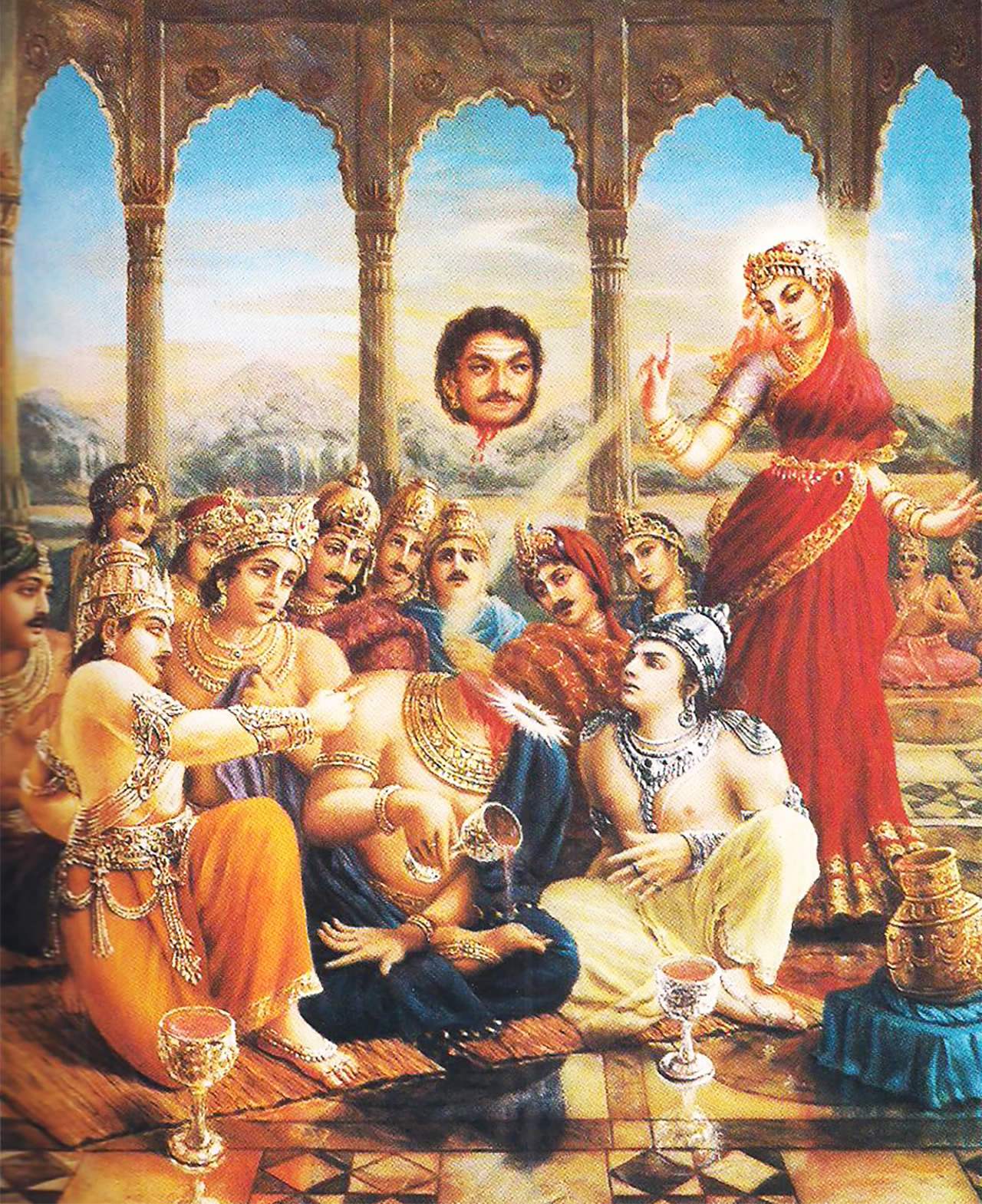
Wikimedia Photo via CGTN America
Wikimedia Photo via CGTN America
As a result, Rahu’s head became a god while his dead body became the constellations.
Rahu’s immortal head now chases the sun and moon in anger, occasionally swallowing them, causing the eclipse. But since there is no body to digest the sun and moon, the heavenly orbs fall from his head and appear again.
Norse mythology
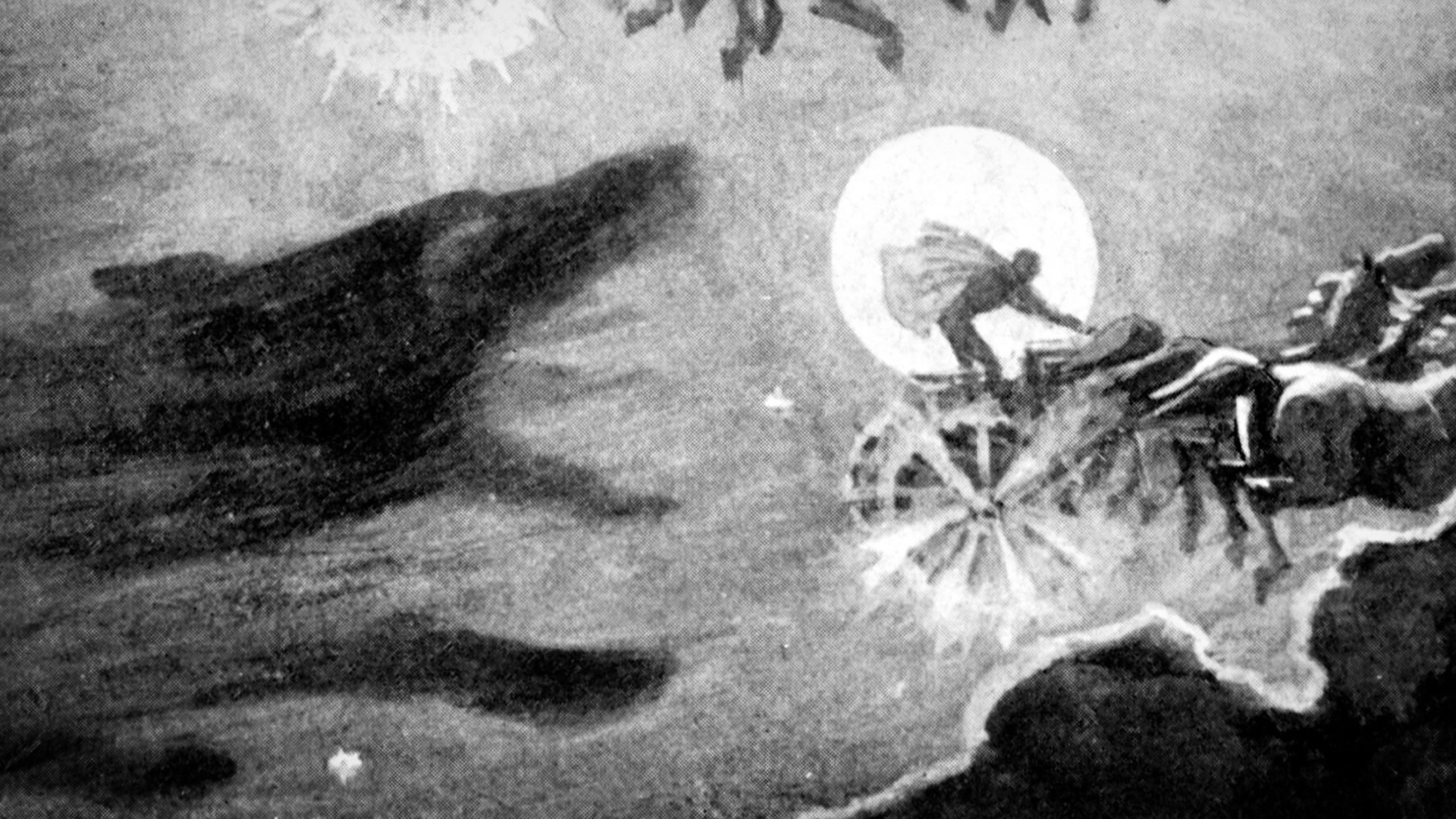
Fenrir wolf chases Sol during the Viking time of Ragnarok. /Photo via CGTN America
Fenrir wolf chases Sol during the Viking time of Ragnarok. /Photo via CGTN America
For the Vikings, Norse mythology talks about the time of Ragnarok (or the Apocalypse), when the imprisoned god of mischief, Loki, and his son, the wolf Fenrir, escape their prison chains to wreak havoc.
While Loki plots an intricate revenge, Fenrir races over the landscape, jaws wide-open, swallowing everything between the heavens and the earth – including the sun.
And there's more…
The world has many other eclipse tales, too:
In Vietnam, one creation myth says eclipses occur when a giant toad or frog swallows the sun.
The Chocktaw tribe of North America spoke of a naughty – and hungry – black squirrel taking nibbles of the sun.
The Tatars of western Siberia even had stories of a vampire who tried to swallow the sun but failed after repeatedly burning his tongue.
An occupational hazard for all sun-eaters, for sure.
Enjoy the eclipse.

SITEMAP
Copyright © 2018 CGTN. Beijing ICP prepared NO.16065310-3
Copyright © 2018 CGTN. Beijing ICP prepared NO.16065310-3